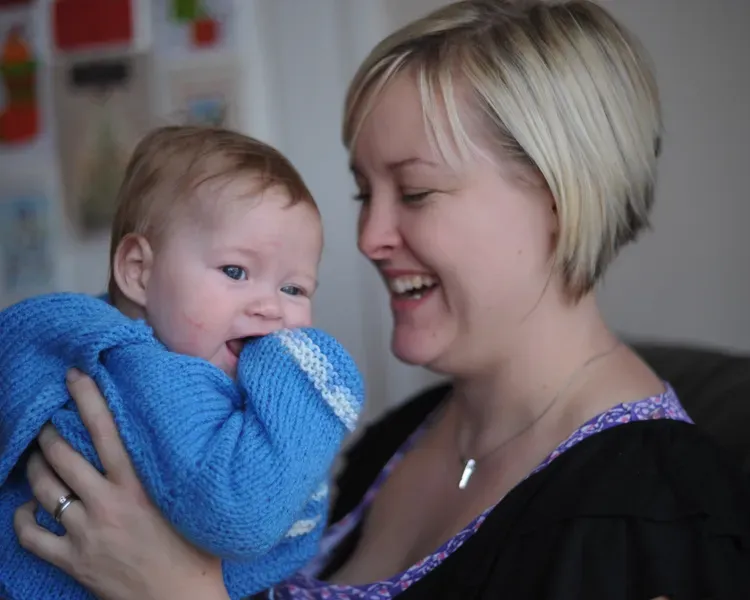Mother and Infant Research Unit research
A summary of our key research areas.

We are a multi-disciplinary team with expertise in midwifery, maternal, child and family health, public health, psychology and sociology. Our methodological expertise encompasses all forms of evidence synthesis, qualitative approaches, participatory research and stakeholder engagement, secondary data analysis, multi-method research, and intervention development and implementation. Our research is funded by CSO, ESRC, MRC, NIHR, Public Health Scotland, WHO
Inclusivity statement
MIRU seeks to be inclusive in its research and uses the terms ‘woman’ and ‘mother’ inclusively. At the centre of MIRU’s research is the pregnant person and their child, and for the majority, the pregnant person is a CIS-woman. MIRU recognises that some people who are pregnant, or breastfeeding do not identify as women, and may identify as men, trans men, non-binary or something else. MIRU supports the rights of all pregnant people to their own bodily autonomy and reproductive rights.
Strategic aims
1. Create a vibrant, diverse and innovative research group, which develops people’s research capacity and capability enabling them to flourish, through education, training and development opportunities
2. Actively involve communities in informing and developing our research priorities and methods to create and mobilise evidence, knowledge and learning
3. Generate robust evidence to understand and improve the health and wellbeing of pregnant women, infants, children and families, and to highlight and reduce inequalities
4. Prioritise impactful research relevant to the current and future needs of national and international stakeholders and that makes a positive and sustainable difference.
Our Research
We use a modified life-course approach to our research influenced by the Global Strategy for Women’s, Children’s and Adolescents’ Health 2016-2030 (WHO 2015) with its focus on Survive (end preventable deaths), Thrive (ensure health and wellbeing) and Transform (expand enabling environments). We have adapted this approach to focus on women’s reproductive health, pregnancy, childbirth and postnatal care, infant and early child health and development, and adolescent parenting. Our research is underpinned by cross-cutting themes of health inequalities and marginalised groups, organisation and quality of care and digital technologies. Over the next 6 years, we have ambitious plans to develop our research in the following 4 key overlapping work strands.
-
Implementation and evaluation of quality midwifery care
Our work within this strand builds on the Lancet Series on Midwifery and the development of the Quality Maternal and Newborn Framework (QMNC), (McFadden, Renfrew) and UK policies for maternity services (Best Start in Scotland, and Better Births in England). Current work includes case studies of implementation of quality midwifery care in India (Symon, McFadden, funder MRC); Strengthening midwifery research and education in Palestine and Ghana (Symon, McFadden, funder NORAD). The latter project includes funding to validate the QMNC index and to use it to evaluate maternity service delivery (Symon).
-
Infant feeding
MIRU has a longstanding track record in delivering high quality research on infant feeding particularly on support to enable women to breastfeed. MIRU leads the flagship Cochrane review ‘Support for Health Breastfeeding Mothers with Healthy Term Babies (Gavine, Farre, McFadden). Our current work involves an NIHR funded evidence synthesis grant to update this Cochrane review and develop an NHS relevant implementation and evaluation framework (McFadden, Gavine, Farre).
-
Perinatal mental health
Perinatal mental health (PMH) problems are those which occur during pregnancy or in the first year following the birth of a child. Perinatal mental illness affects up to 20% of new mothers and pregnant women and covers diverse health challenges and conditions. This strand will include research on PMH from a wide range of angles. Current studies include those on child removal, and perinatal experiences during Covid. There is substantial interest in growing research in this area.
Sitting within our work on perinatal mental health is a strand of work aimed at improving maternal experience and wellbeing in the context of preterm birthing. Premature birth can be associated with poor infant health outcomes including long-term development difficulties, making the provision of high-quality neonatal care a priority. Parents of preterm infants face many challenges and there is evidence that their support needs are not met both within neonatal intensive care (NICU) and following discharge. Current work within this strand includes a creative storytelling project Embodying Mothering in NICU (Chowdhry).
-
Adverse and Positive Childhood Experiences
Adverse Childhood Experiences (ACE) cover a wide range of adversities experienced from pre-birth and birth to age 18, including parental imprisonment, parental mental health and substance misuse issues, and child maltreatment and neglect. Positive Childhood Experiences are less well defined but include attachment, a sense of belonging, and peer relationships. Alongside research into the methods used in ACE/PCE research, and the impacts of both ACE/PCE, we are currently conducting, and have ambitions to conduct substantially more research into the individual ACE/PCE elements.
These studies fall under three key areas:
Parental Substance Use
Parental substance use studies include CSO and ESRC funded studies on maternal opioid use in pregnancy and child developmental outcomes.
Child Maltreatment
Current work on child maltreatment is exploring the experiences of pregnancy/maternity services for women who repeatedly have a child removed, and a study exploring the characteristics of children referred for child protection. Future work in this area hopes to explore child outcomes following maltreatment (e.g., addiction, chronic pain, mental health) and pregnancy and birth outcomes for women who experienced childhood sexual abuse.
Attachment
Attachment studies overlap substantially with our infant feeding strand. Current work includes research in the group on kangaroo care. Future focus includes the exploration of attachment and breastfeeding as a positive childhood experience, including within neonatal units.